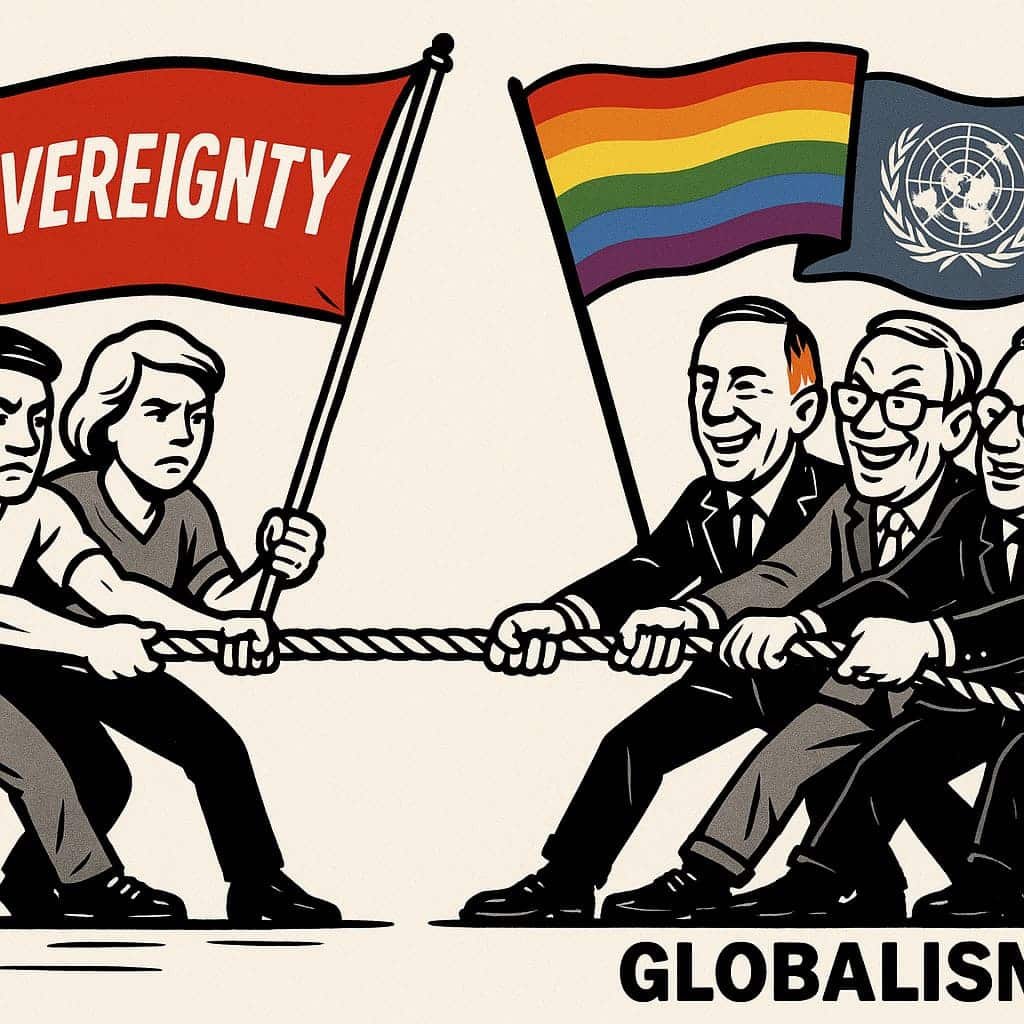Nationalism Explained – Sovereignty vs Globalism
They told you nationalism was dangerous, even hateful. Yet every state in history has put its own survival first. Call it patriotism, sovereignty, or self-interest — it’s the oldest political instinct there is. The irony? While nationalism is smeared as backward, globalism is quietly sold as “progress,” even when it serves the rich and powerful most.
Table of contents
What Is Nationalism?
Nationalism means putting your nation’s sovereignty, culture, and interests above external control. It’s the idea that political power should belong to a people who share identity, history, and borders — not to distant bureaucrats or global corporations.
- Origin: rose in the 18th–19th centuries with the decline of empires and the rise of nation-states.
- Today: dismissed as “reactionary” — but in practice, every country from the U.S. to China runs on it.
Buzzwords & Spin
Nationalism’s critics rebrand it with charged labels:
- “Populism” → when people vote against globalist elites.
- “Isolationism” → when countries prioritise domestic industries.
- “Nativism” → when borders are defended.
- “Authoritarianism” → when leaders don’t defer to international NGOs.
Meanwhile, “globalism” is dressed up as openness and progress — though its winners are almost always the same: financial elites and multinationals.
How It Shows Up in Practice
- Trade & Economics: Tariffs vs free trade. U.S.–China rivalry is nationalism versus globalism in action.
- Borders: Brexit was nationalism against EU globalism. Hungary and Poland reject EU migration quotas.
- Culture: Nationalists emphasise language, tradition, and local values. Globalists push diversity slogans as universal norms.
- Foreign Policy: “America First” or “France for the French” rhetoric vs UN, NATO, and EU institutions.
Who Benefits? Who Doesn’t?
- Nationalism benefits: Citizens who want sovereignty, local workers, small businesses, cultures at risk of being diluted.
- Globalism benefits: Corporations, financial elites, transnational NGOs, and bureaucrats whose power grows when nations are weakened.
The Consequences
Nationalism is smeared as dangerous because it disrupts global elites. But when sovereignty weakens, power doesn’t disappear — it shifts upward, to unelected institutions and multinational corporations.
The great irony: those shouting “nationalism is toxic” are often defending the most self-interested, ruthless globalist power plays.
Conclusion
Nationalism isn’t going away — because sovereignty is survival. What started as a 19th-century rallying cry is now the last line of defence against a corporate-bureaucratic empire in woke disguise.
FAQ
What is nationalism in simple terms?
Nationalism means putting your country’s sovereignty and interests above outside control.
Why is nationalism controversial?
Because elites brand it as dangerous while quietly using globalism to expand their own power.
Is nationalism the same as patriotism?
Not exactly. Patriotism is love of country; nationalism is organising politics around that principle.
Who benefits from globalism?
Multinational corporations, financial elites, and international bureaucrats.
Does it always mean war?
No — but it does mean states act in self-interest. Sometimes that clashes with others.



